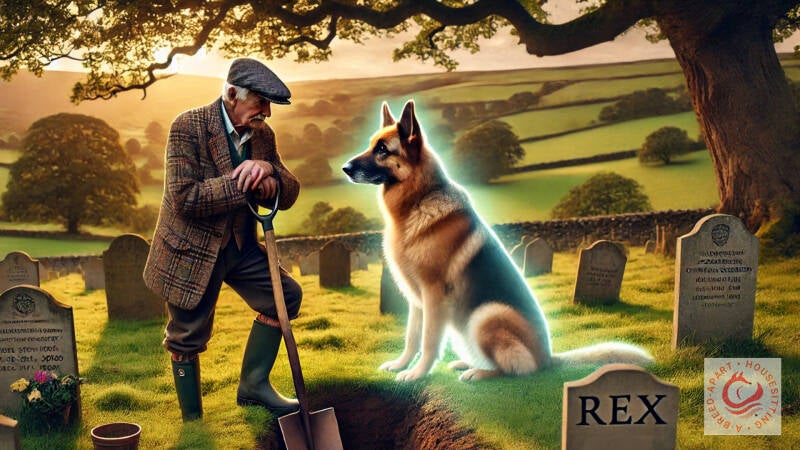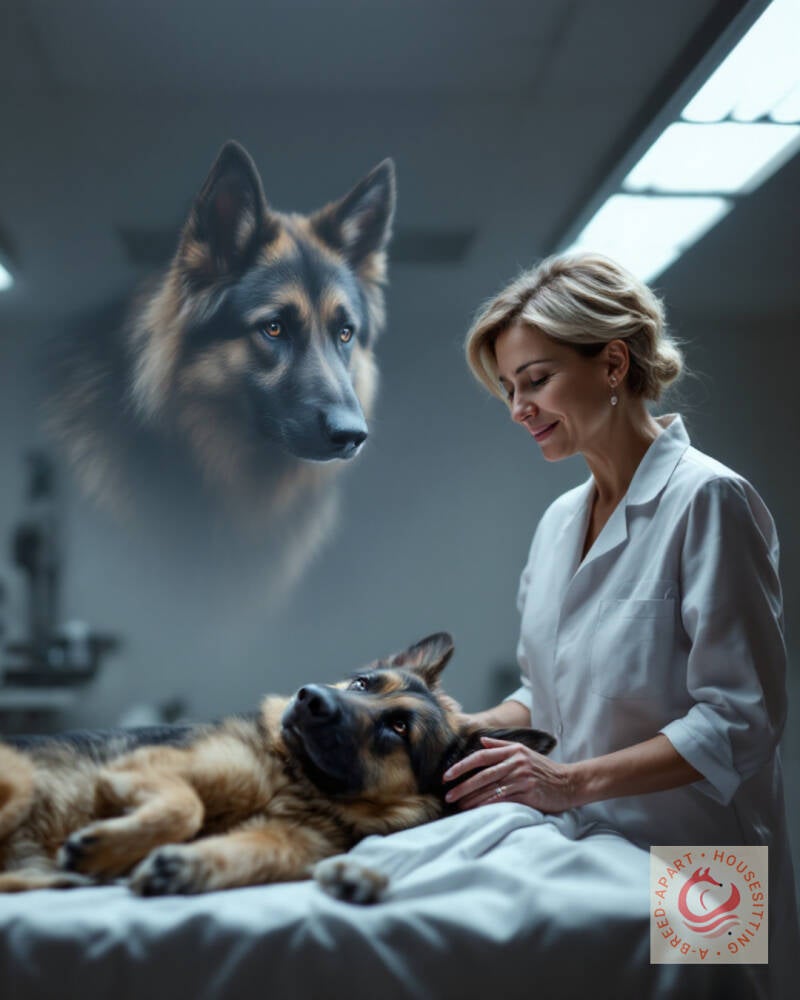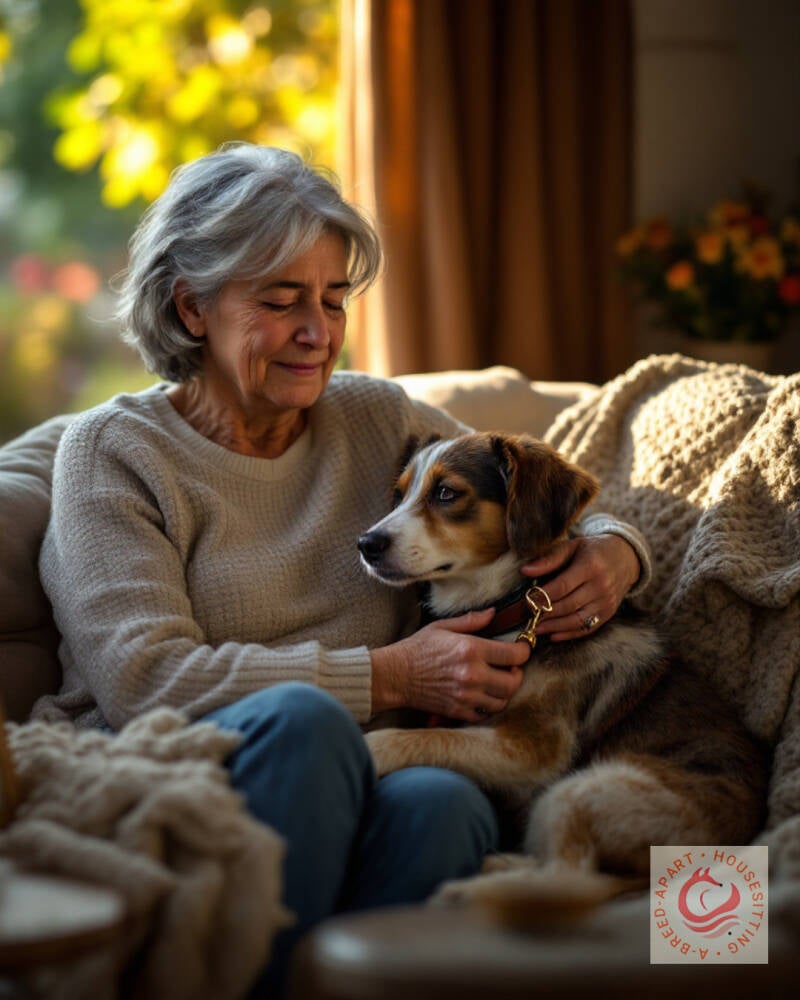Part 1: Understanding Grief and Finding Comfort
When Goodbye Comes Too Soon - Pet Remembrance Day
Whether they’re bounding beside us on walks or curled up purring by the fire, our pets become so much more than just animals. They are companions, confidants, and if we're honest, close family. When they leave us, the pain can be just as deep as losing a human loved one, and yet, many feel unprepared for the grief that follows.
If you've recently lost a beloved dog or cat, or are anticipating that painful moment, know that you're not alone, and you don’t have to grieve in silence. This two-part series on coping with the loss of a pet will gently walk with you through the stages of pet loss, offer compassionate advice, practical support, and ideas for creating lasting tributes to your treasured companion.

The Emotional Impact of a Pet Dying
Grief following the loss of a pet is real and valid. Yet, it’s often dismissed or misunderstood by those who haven’t shared that kind of bond. You may be told, “It was just a dog,” or “You can get another cat.” But if you’ve ever felt the warmth of a cold, wet nose nudging your hand or the contented rumble of a cat purring against your chest, you know it’s not that simple.
Grieving a pet is uniquely personal. It may bring waves of sadness, guilt, anger, and even physical symptoms like fatigue or loss of appetite. Don’t be surprised if certain places around your home; the back door, the garden bench, their spot on the sofa trigger a sudden lump in your throat and even tears.
According to the Dogs Trust, it’s completely normal to grieve intensely for a dog or cat and they say that 38% of owners are taken by surprise at how deeply grief affected them. Our pets often provide emotional stability and daily structure, and losing them can create a tangible void.

Common Stages of Pet Loss Grief
Though grief is not linear, many people will experience some degree of the following emotional stages:
- Shock and Denial: Especially if the loss was sudden, the initial days may feel surreal. You may find yourself listening for the sound of paws or expecting to hear a familiar meow.
- Guilt and Regret: “Did I do enough?” “Was it the right time to let them go?” These questions can haunt us. It’s important to remember that choosing euthanasia is often the final act of love, not failure.
- Anger: You may feel anger at the vet, at yourself, or at the unfairness of it all. These feelings are natural.
- Depression and Sadness: As the reality settles, a deep melancholy can set in. This is a time to be kind to yourself and seek support.
- Acceptance and Remembrance: With time, pain softens. You may find peace in your memories and even start to smile when thinking of your pet.
Allow Yourself to Grieve – In Your Own Way
There’s no timeline for grief. Some people need to talk about their pet constantly, while others prefer quiet reflection. Writing in a journal, creating a photo album, or simply sitting in your pet’s favourite spot can help you process your feelings.
In the countryside, especially where life tends to be closely intertwined with our animals, dogs working the land, cats mousing in barns, chickens clucking away in the garden, their absence is deeply felt. Don’t rush through your grief just to “move on.” Let it unfold naturally.

Practical Ways to Find Comfort
- Speak to a Pet Loss Counsellor: Services like The Blue Cross Pet Bereavement Support offer free, confidential support.
- Talk to Someone Who Understands: Friends, family, or others who’ve lost a pet can be an enormous source of comfort. Even a heartfelt conversation over tea can lift the weight a little.
- Maintain Routines: Especially if you have other pets, sticking to your regular schedule of mealtimes, walks, bedtime etc. can provide structure and healing.
- Write a Letter to Your Pet: This can help express everything you didn’t get to say. It’s a gentle, cathartic way to begin processing your grief.
Have you recently said goodbye to a beloved dog or cat? What helped you through those early days of grief? We’d love to hear your story – not just for you, but for others who may be reading and feeling alone in their sorrow. Please share in the comments, or drop us a message privately if that feels more comfortable.
Coming in Part 2: We’ll look at how to celebrate your pet’s life through memorials and keepsakes, how to support children and other pets during loss, and how to know when, or if, it’s time to welcome a new companion into your life.
Author Bio
Glenn Bauer is a trusted professional specializing in pet and house sitting for rural homes and estates across the Cotswolds and South West and South England. With years of hands-on experience in managing properties and animals, he offers tailored care and solutions. His expertise is reflected in consistent 5-star client reviews. Read Glenn's journey to professional pet and house sitter Glenn and Mandy: The Journey behind A-Breed-Apart
If you'd like to send Glenn a message, then visit his Contact Page.



Add comment
Comments